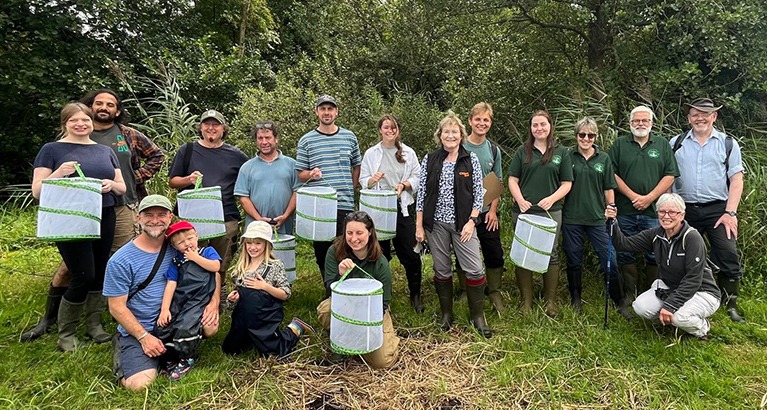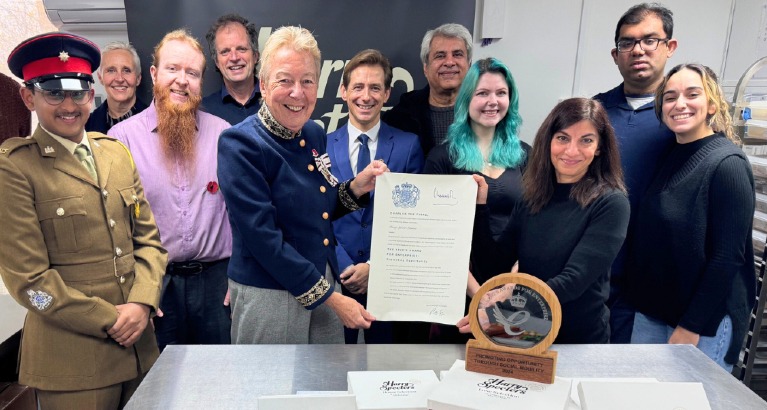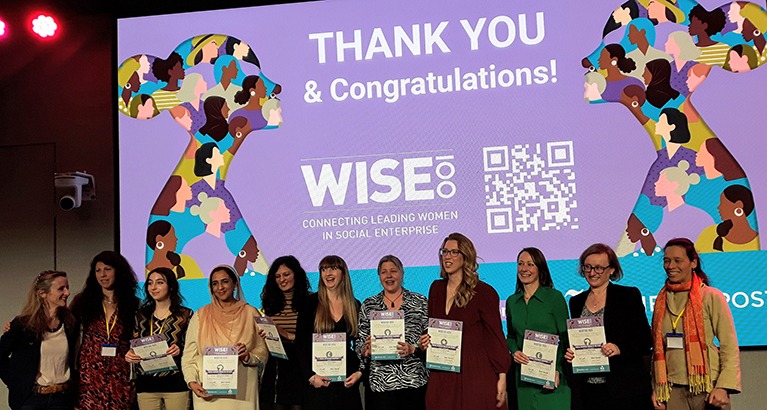Red squirrels, turtle doves, hedgehogs and grasshoppers. All of these animals have one thing in common: they’re all on the list of the most endangered animal species in Great Britain. Due to human activity, climate change and loss of habitat, the future is not looking bright for a great number of animals in the UK and around the globe.
This is where Citizen Zoo comes in. Founded in 2016 by Lucas Ruzo, the startup seeks to get members of the public involved in supporting conservation of endangered species through rewilding, in ways that reach beyond what zoos and conservationists are doing today. The London-based organisation employs 7 people and recruits hundreds of volunteers across the UK annually, 15 of which form part of a dedicated cohort of voluntary keepers, or ‘Citizen Keepers’ as they are affectionately known.
“We don’t want to replace the work that’s done by professional conservationists,” says Lucas, “but we want to support them and offer additional help. There’s a lack of funding and resources and I think the public could help here.”
Citizen Zoo was supported by the Cambridge Social Ventures programme, run by the Centre for Social Innovation at Cambridge Judge Business School. The organisation was recently awarded a £500,000 donation pledge over 5 years from the Lund Trust.
Bringing grasshoppers back to Norfolk
The first Citizen Zoo project was the reintroduction of the large marsh grasshopper in Norfolk launched in 2018 and it was integral to Citizen Zoo, according to Lucas. The project came about as an idea to solve one of the biggest bottlenecks in captive breeding for reintroduction programmes – high cost – because traditionally these activities are carried out by zoos, Lucas says. “We thought: ‘what if non-experts could breed endangered animals for reintroduction in their homes, as volunteers?’ With that in mind, we wanted to test if this was feasible and eventually find a suitable test species to try out this methodology, which since its launch has worked remarkably well.”
The first step of the project was to get consent from Natural England and the Forestry Commission. Secondly, a group of Citizen Keepers were recruited and received bespoke training on grasshopper rearing, husbandry and biosecurity. Each year, the core team at Citizen Zoo use strict a methodology approved by Natural England to collect a number of wild large marsh grasshoppers in the New Forest for use as part of the captive breeding for re-introduction programme. These individuals are then bred in captivity and their eggs collected over winter for storage. In spring, the eggs are then given to their dedicated team of Citizen Keepers, who rear the eggs and young juveniles to adulthood before they are released into the wild each summer.
“Here they laid far more eggs than they would have done in the wild. These eggs were collected for hatching and home-rearing the following summer.” The Citizen Zoo team estimates it managed to release several hundred adult grasshoppers into the wild in the first year of the project, and by 2024 the number is close to 5,000 insects.
Lucas comments further:
“Imagine the thrill we felt in July 2020 when, during routine site monitoring, we discovered the first of many Norfolk-born males calling for females with their distinctive clicking stridulation. This was a great milestone for the project, which had not been documented at the site since 1968, and things are still going strong.”
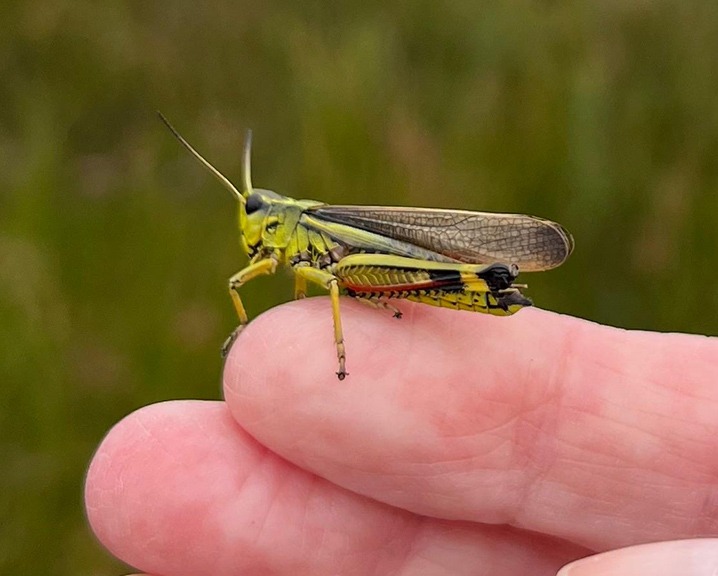
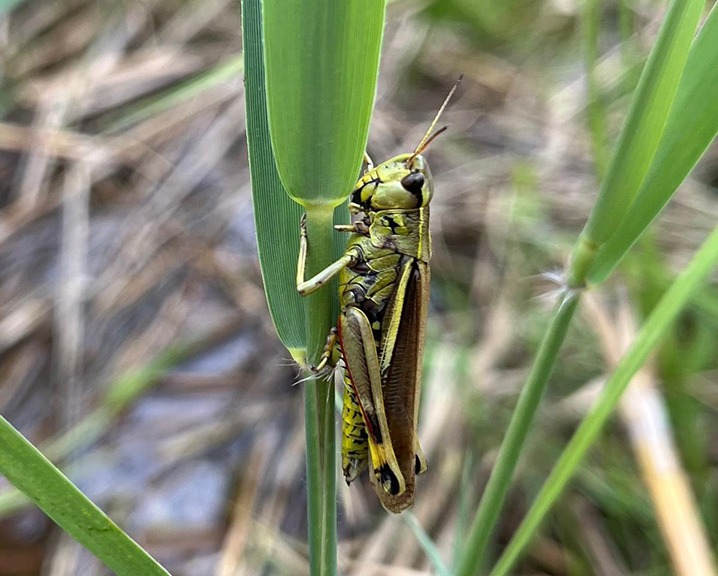
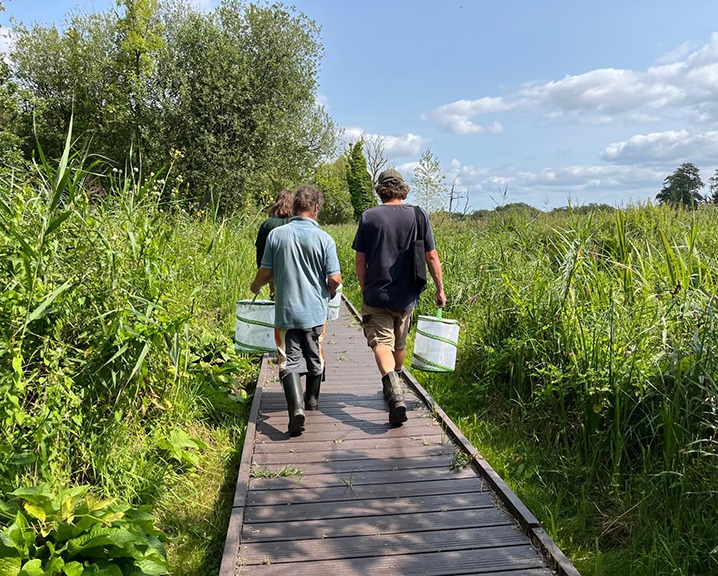
What is is like to be a Citizen Keeper?
Eleanor Drinkwater, one of the Citizen Keepers who worked on the grasshopper project, said: “It’s a weird feeling holding an animal that you know is going to go extinct and there’s nothing you can do about it.” Eleanor, who has been a big bug enthusiast since her childhood, was eager to join a project that involves insects.
From keeping their vivariums in an optimal condition to encourage the eggs to hatch, to later collecting grass to feed the fast-growing insects on a daily basis, to keeping them safe and finally releasing them into nature – that’s the job in a nutshell. After going back to wetlands in Norfolk to check on released grasshoppers, Eleanor was really excited to find a healthy female insect and realising it’s doing great. “You have the re-introduction of this beautiful charismatic creature in the area of the UK which it disappeared from, so that’s exciting in itself,” she said. “But the way we got this amazing community involvement, all of whom really care about these little creatures. I think that’s an awesome and fun way of doing conservation.”
Returning beavers, water voles and white storks to London
Since then, Citizen Zoo has worked to bring beavers back to London for the first time in 400 years. This was a big event, Lucas says, funded by London Mayor Sadiq Khan, who also came to the release event. Another successful project was to reintroduce water voles to West London after they disappeared in 2017.
And more recently, Citizen Zoo has launched the London White Stork project, with the aim of bringing the species back to the capital city. “White storks are nesting in Britain after their successful reintroduction a few years ago, and now we would like to restore them to London,” Lucas explains. White Storks are a charismatic species which thrives in urban environments and form an important ecological role.
The co-founder of Citizen Zoo, Elliot Newton, says it would be fabulous if white storks resided in St James’s Park near Buckingham Palace, which would symbolise urban regeneration and ecological recovery in the UK.
The big donation from the Lund Trust will help with core costs and development of new and existing projects, including the London White Stork project.
When asked how the team chooses which species to work on, Lucas said it’s a combination of reviewing the literature to see which species have been identified as a priority species, but also being opportunistic in selecting species that are ready to be reintroduced from a social perspective.
“For example, 10 years ago re-introducing beavers to Great Britain would have been near impossible, whereas now demand for beavers is fast outstripping supply,” he adds. Beavers have recently been reclassified as a native species in Britain and are legally protected, so more landowners in England now want beavers as part of efforts to restore habitats and the ecosystems on land that they own.
“So sometimes it is a combination of rigorous science but also social-political will as to which species are appropriate in a given social context.”
How Citizen Zoo came about
Lucas studied Zoology in Edinburgh and earned a Masters in Conservation Science and Practice at Imperial College in London. He then co-founded a charity that works with nature-based solutions to mitigate climate change, the Association for Coastal Ecosystem Services. The charity works to conserve and restore endangered mangrove forests in East Africa, mostly in Kenya.
When he moved to Cambridge after his studies, the idea for Citizen Zoo came to fruition. He joined the Cambridge Social Ventures programme at Cambridge Judge in 2016, and says the learning and support there were invaluable.
“All the advice I received, whether related to governance, legal structure, finance, accounting or other, were all immensely helpful. In general, being exposed and having access to this network of very experienced and smart people from a wide range of backgrounds has been an ongoing privilege, as well as creating friendships with the people I met at the time, are still valuable today.”
Related content
Citizen Zoo graduated from Cambridge Social Ventures in June 2017.


